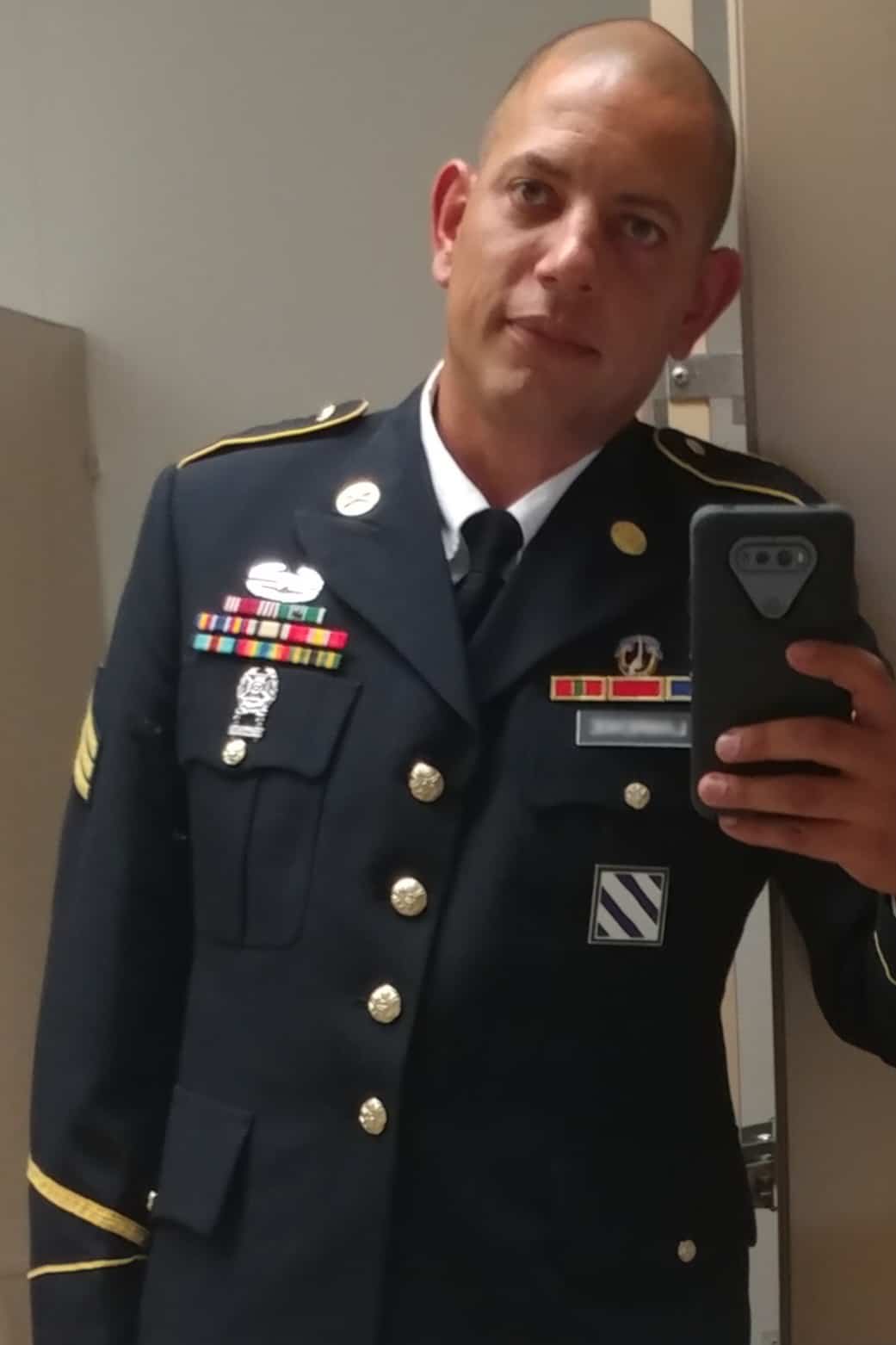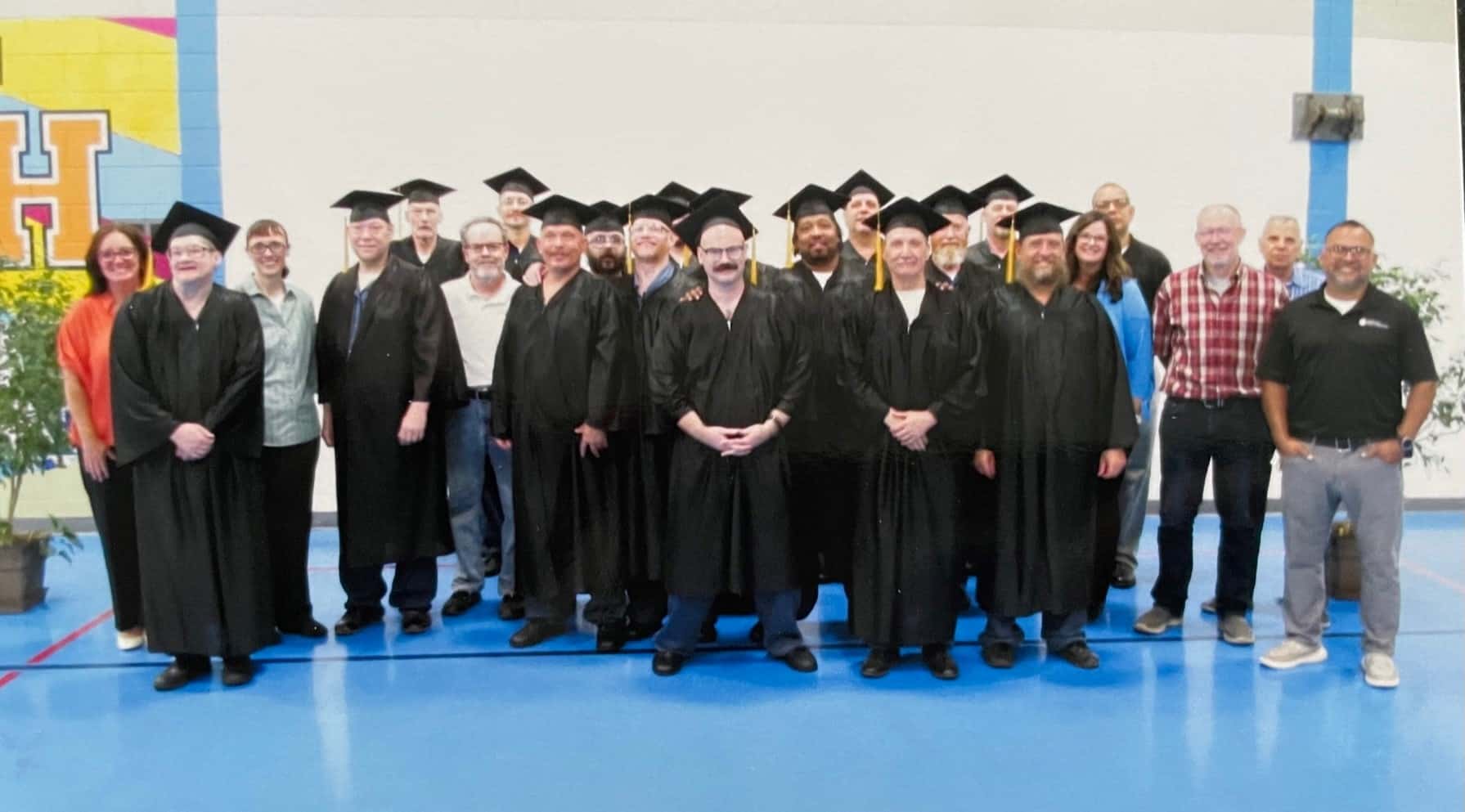-
PAVING THE ROAD TO RECOVERY
How Celebrate Recovery and the Academy are changing lives in and outside of prison
By Lexi Aggen
An open bottle of beer sat on the table in front of Brian, next to a pamphlet for Celebrate Recovery. At 32 years old, he had a choice to make: continue living with his addiction or get help.
He chose Celebrate Recovery, a 12-step program for those dealing with “hurts, hang-ups, and habits of any kind.” The program became a foundation in Brian’s life. But when he made the decision to attend Celebrate Recovery 10 years ago, he never anticipated that it would lead him to volunteer in prison.
A DOWNWARD TREND
Ten years before that, when Brian was 22, he needed a job. His girlfriend was pregnant, and they needed insurance to help cover medical bills. His cousin recommended joining the Army—which ended up being the perfect place for Brian.
“The Army and I fit together like a glove,” says Brian, who appreciated the structure and community the Army provided. “I found a place where I could be home.”
He and his girlfriend married before Brian was deployed. But the marriage didn’t last long. During his second tour in Iraq Brian received divorce papers. The divorce left him with nothing—his home, clothes, and car were all sold off. Brian already enjoyed drinking, but after the divorce his habit started to get out of control.
When Brian returned from Iraq, he struggled to adjust to life stateside. He soon received orders to go to Fort Knox, where he met the woman who would become his second wife. After a year of marriage, the couple decided his time in the Army was done, but finding work after the Army wasn’t easy. It would take a year before Brian would find work as a car salesman.
His wife would often prompt him about his drinking, but Brian always denied any problems. It was through her promptings that Brian realized the need to change—to move past the addiction and find a better way of living.

THE OTHER SIDE OF THE DOOR
That’s when Celebrate Recovery entered his life—and he never looked back. He actively participated in the program through his church for seven years, becoming well known in the Celebrate Recovery community. After those seven years, Brian was eager for a more active role—he wanted to give back, both to Celebrate Recovery and to God.
His pastor approached him about leading a Celebrate Recovery group inside Muskegon Correctional Facility through the Prison Fellowship Academy®. The Academy is a yearlong program led by compassionate coaches and offers a holistic curriculum.
In 2017, Celebrate Recovery and Prison Fellowship® partnered together to include Celebrate Recovery Inside as part of the Academy curriculum. Both Celebrate Recovery and the Academy are based in biblical principles and emphasize the value of community, so the programs complement one another well.
After a week of praying about the opportunity, Brian agreed to volunteer. Before entering the prison, he thought the men in his class might be angry and resentful about imprisonment and resistant to the program. Instead, he discovered compassionate participants who were willing to be vulnerable—because that is the kind of environment Celebrate Recovery fosters.
“When we have our conversations, or when we have small group together, they share openly [about] their situation, how they got to where they are,” he says of the men he leads.
Most notably, Brian marveled at the integrity of the men he encountered through the Academy. Integrity is one of the Values of Good Citizenship, six core values that the Academy is built upon.

Brian discovered compassionate participants who were willing to be vulnerable—because that is the kind of environment Celebrate Recovery fosters.
A GREATER IMPACT
Though the in-prison class in the Academy follows the same curriculum as outside Celebrate Recovery groups, Brian is astounded by Celebrate Recovery Inside. He feels the classes he facilitates in Muskegon Correctional have helped him.
“I went in there and got more than I bargained for,” he says. “I thought I was going into a place where I was going to help people, and it turns out the men have helped me more.”
One of Celebrate Recovery’s customs is to avoid giving advice; instead, participants are encouraged to share their own experiences. For Brian, the men’s stories have had a profound impact on his home life.
Brian heard one prisoner expressing regret over his relationship with his late father and wishing they had spent more time together. The conversation left a mark on Brian, and when he was let go from his job selling cars, he counted it as God’s mercy. He accepted a position at a bank, which freed up more time for him to be home with his family. Since then, Brian has seen an improvement in his relationship with his son.
Recently, another conversation with the Celebrate Recovery group in Muskegon Correctional inspired Brian to deactivate all social media. After deactivating his accounts, his relationships with his wife and family have greatly improved.
"What they were trying to tell me is … 'You need to leave the things alone that are really sucking you in and destroying your life,'" he says.
"There’s lots of veterans, unfortunately, who are incarcerated, who took the wrong path and need brothers like us, that they can relate with and share their story, so that they can find healing just like we did.”
—Brian
A NEW BROTHERHOOD
Brian has found that, along with his own experience going through Celebrate Recovery, he can connect with the men in the Academy about his time in the military.
“There’s lots of veterans, unfortunately, who are incarcerated,” he says, “who took the wrong path and need brothers like us, that they can relate with and share their story, so that they can find healing just like we did.”
Brian is correct. According to the Vietnam Veterans of America nearly 181,000 veterans were incarcerated in 2021.
Often, when making a point or explaining a topic, Brian will share a story from his time in the Army. When he does, he always sees the veterans in his group “light up.”

“That person will always be a veteran,” Brian says, “and he needs to have that respect. He needs to be shown it regardless of his current situation.”
But Brian has gained more than just wisdom from his time leading Celebrate Recovery through the Academy—he has gained deep friendships with the men he leads. Throughout the yearlong program, Brian and the Academy participants work to break down barriers and build trust, starting from simple steps like learning the names of all the men.
“[Celebrate Recovery] takes complete strangers and makes them brothers and sisters,” he says. “I’m friends with those men inside. I treat them like family. They’re not inmates. They’re not prisoners. I tell them all the time that they’re people and they matter.”
Now, Brian is eager to invite more people to experience the healing through Celebrate Recovery and the Academy. Sometimes it takes a little more convincing, as the stigma and fear around entering a prison can hold people back. But Brian knows it takes just one experience to ignite change—including your own.
“Anyone who wants to get involved in prison ministry needs to just go,” he says. “I promise you, the minute they walk in the gate, it will change their life.”